Organic farmers in Italy avoid using synthetic pesticides, fertilizers, or genetically modified organisms (GMOs) on their farms. Instead, they use traditional techniques such as crop rotation, cover cropping, and composting to maintain soil fertility while preventing environmental damage. Organic farming practices aim to promote biodiversity by encouraging the growth of different plant species on farmland.
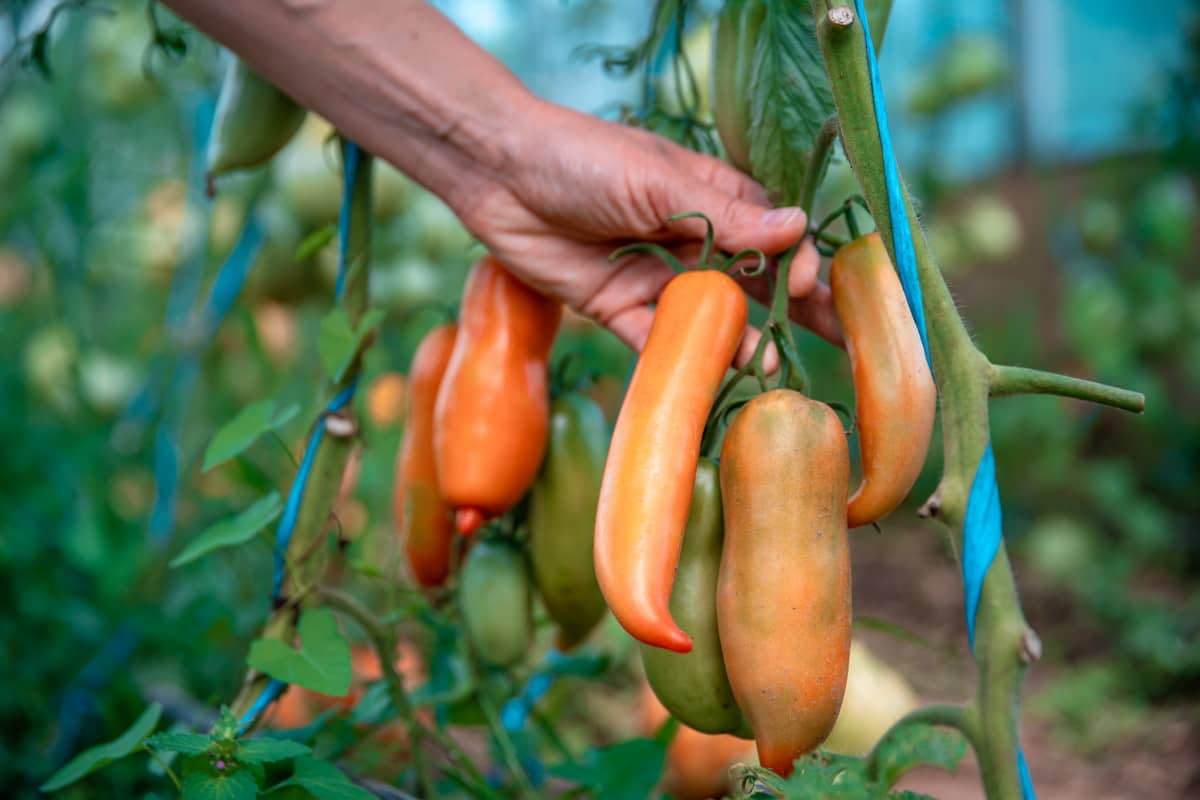
How to Start Organic Farming in Italy
What is Organic Farming?
Organic farming is a type of agriculture that relies on natural inputs and techniques to grow crops without the use of synthetic fertilizers, pesticides, or genetically modified organisms (GMOs). The main goal of organic farming is to create healthy soils rich in nutrients and beneficial microorganisms. Organic farming in Italy often involves a closer relationship between farmer and consumer through direct sales at local markets or farm-to-table restaurants.
The Benefits of Organic Farming in Italy
- One of the significant benefits of organic farming is that it promotes healthy living by ensuring that food products are free from harmful chemicals and pesticides.
- Organic farming also helps to preserve the environment as farmers adopt practices that conserve soil, water, and energy resources. This results in improved soil fertility and reduced greenhouse gas emissions contributing to climate change.
- In addition, organic produce generally tastes better than conventionally grown produce because it can ripen naturally on the vine or tree.
- Furthermore, small-scale farmers who practice organic agriculture can benefit economically as consumers often pay a premium price for their products.
The Different Types of Organic Farms in Italy
- Organic farming has become increasingly popular in Italy over the years. One type is livestock farming, which involves raising animals for meat, milk, or eggs.
- Another type is crop farming, where you grow vegetables and fruits organically, such as tomatoes, peppers, and kiwi fruit. These crops are grown without synthetic fertilizers or pesticides to maintain soil fertility and reduce environmental pollution.
- You may also consider starting an olive farm if you have enough land space since Italy is famous for its high-quality olive oil products. Olive trees require minimal maintenance but produce valuable yields annually.
- Flower farms are another option worth considering because they offer unique opportunities to cultivate flowers naturally without damaging the environment around them with harmful chemicals, like traditional flower growers often do.
In case you missed it: How to Start Greenhouse Farming in Turkey: Crops, Subsidy, and Loans
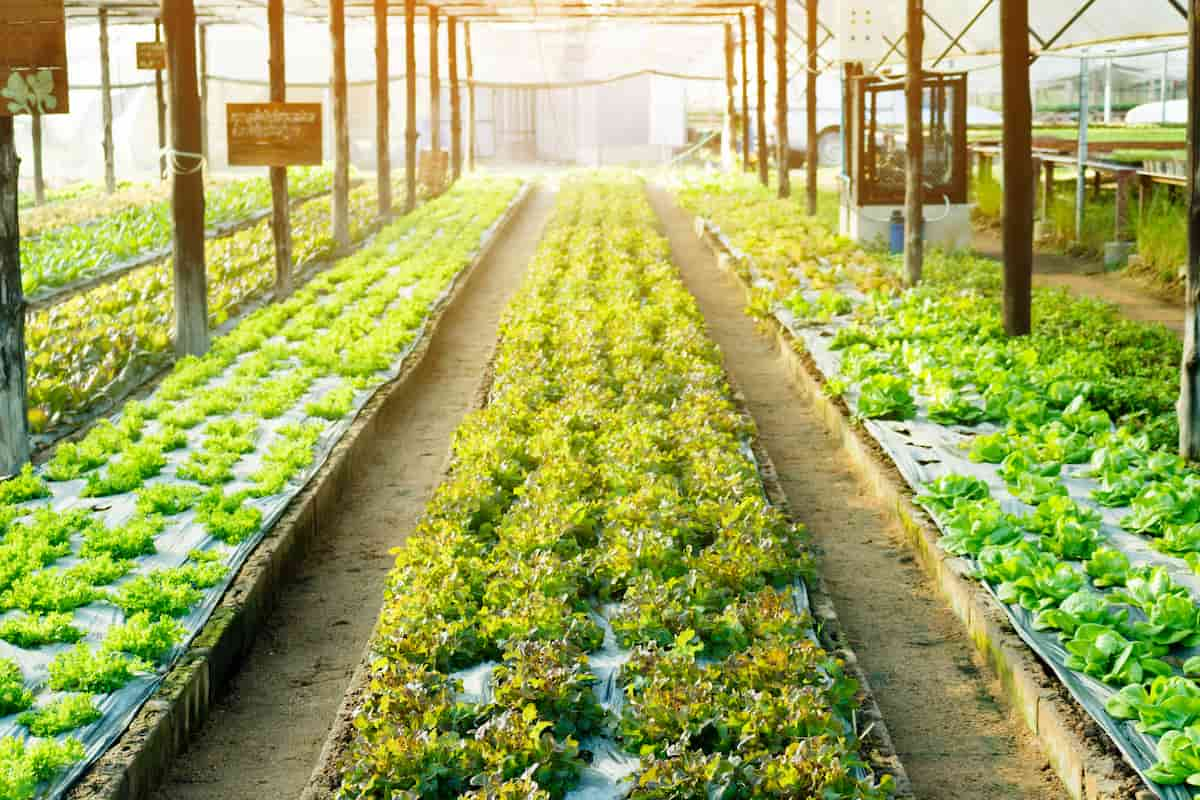
Crops Grown under Organic Farming in Italy
Italy also has an ideal environment for growing vegetables like Eggplants, Zucchini Squash (courgette), Peppers (capsicum), and Artichokes. These veggies have been cultivated since ancient times using traditional methods passed down from generation to generation. When starting an organic farm in Italy, one should consider cultivating these crops depending on location and market demand: olives for oil production, Tomatoes & other vegetables, and Grapes for wine-making.
Steps to Start Organic Farming in Italy
- Before starting your organic farm in Italy, thoroughly research the market demand for different organic products and the regulations surrounding organic farming.
- Selecting a suitable location is key to success in organic farming. Consider soil type, climate, water availability, and market proximity.
- You need to find a place that has good soil quality and receives adequate sunlight. It’s also important to consider water availability and market access factors.
- Once you’ve found your ideal location, it’s time to prepare the land for planting. This involves removing weeds, rocks, and other debris from the field. You can then add compost or manure to enrich the soil.
- Decide what crops you want to grow based on market demand and suitability for your chosen location. It’s important to select well-suited plants for your region and climate conditions. It would help if you also considered crop rotation, as this helps prevent pests and diseases from building up in the soil.
- Starting small allows you time to learn about local conditions while keeping costs low before expanding gradually when profits increase.
Nutrient Management for Organic Farming in Italy
- Nutrient management is an essential aspect of organic farming in Italy. Since synthetic fertilizers are not used, nutrient management relies on natural methods to maintain soil fertility and enrich the soil’s nutritional content.
- In organic farming, crop rotation plays a significant role in managing nutrients. Farmers often rotate crops to enhance soil quality and reduce the risk of diseases and pests. For instance, farmers can plant legumes such as beans or clover that fix nitrogen from the atmosphere into nitrates for use by other plants.
- Composting is also an effective way to manage nutrients in organic farming. Organic matter like livestock manure or vegetable waste is decomposed through composting, creating a rich source of nutrients for crops. In addition, cover cropping helps control weeds while promoting soil health by adding valuable nutrients back into the ground when they decompose after being tilled under.
In case you missed it: A Step-By-Step Guide to Soybean Farming Business Plan
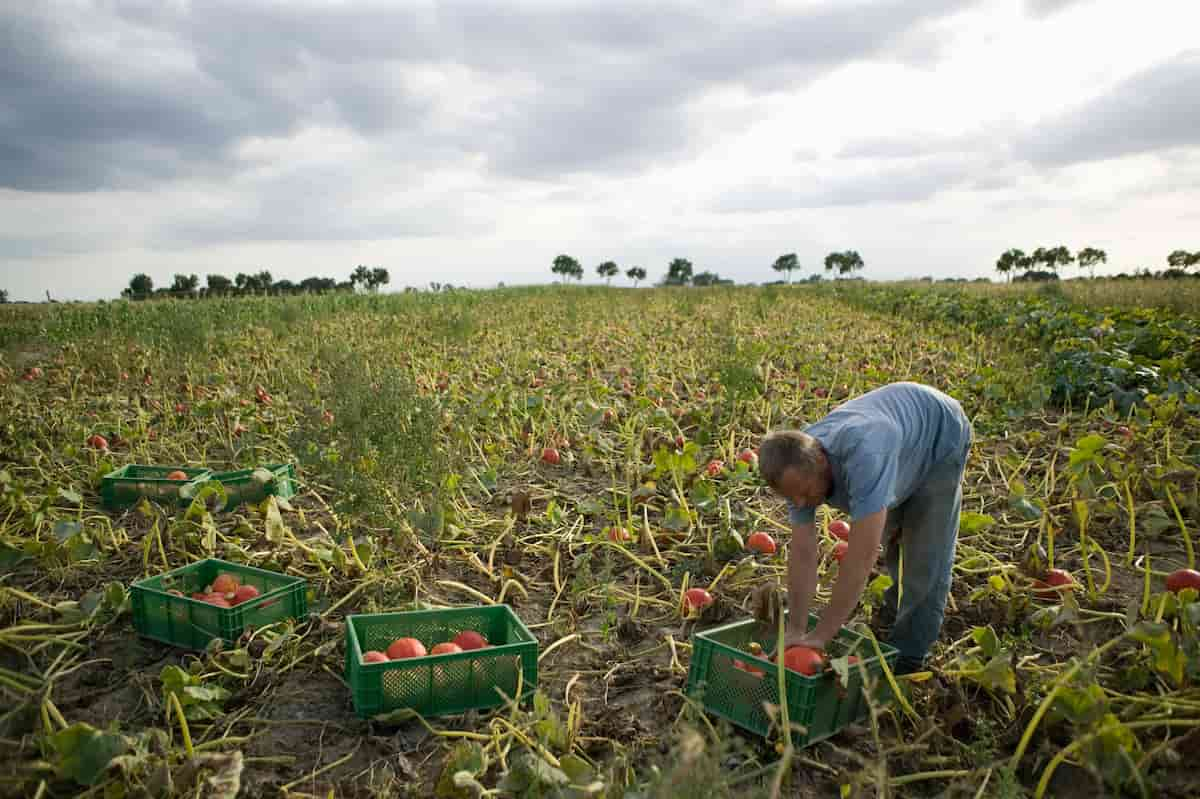
Organic Vegetable Farming in Italy
- Organic vegetable farming is becoming increasingly popular in Italy. Italy provides a perfect environment for organic vegetable production with its fertile soil and an ideal climate. However, starting an organic vegetable farm can be challenging, especially for beginners.
- To start an organic vegetable farm in Italy, choose the right crops suitable for your location and soil type. Some popular vegetables grown organically in Italy include Tomatoes, Zucchini, Eggplants, Peppers, and Lettuce.
- Organic farmers use natural methods such as crop rotation and composting to maintain healthy soils without synthetic fertilizers or pesticides.
- Marketing your product is also crucial to success in this business. Many Italian cities have farmer’s markets where local growers can sell their products directly to consumers who value fresh and pesticide-free food options.
Is Organic Agriculture Applicable in Italy?
- Italy is a country that has been producing food for centuries, and organic agriculture has become increasingly popular in recent years. Many people wonder whether this type of farming is even possible in Italy, given the country’s long tradition of conventional agriculture.
- In Italy, farmers can choose from a variety of different types of certified organic production systems depending on their needs and goals. These include biodynamic and permaculture practices, gaining popularity among small-scale farmers.
Organic Soil Management in Italy
- Organic soil must be healthy and fertile for optimal crop production. In Italy, farmers use various techniques such as cover cropping, composting, and mulching to improve soil health naturally without relying on synthetic fertilizers or pesticides.
- Organic soil management is an essential aspect of successful organic farming in Italy. It involves using natural methods to maintain the health and fertility of the soil. One of the most crucial elements in organic soil management is maintaining a healthy balance between nutrients, microorganisms, and beneficial insects.
- In Italy, farmers use various techniques to ensure that their soils remain fertile without using synthetic fertilizers or chemicals. These include crop rotation, green manure, composting, and cover cropping. Crop rotation involves alternating crops each season to prevent soil nutrient depletion while reducing pest infestations.
- Green manure involves planting legumes such as clover or beans that fix nitrogen into the soil for later crop use. Composting entails adding decomposed plant materials to fields as fertilizer rather than chemical options, like traditional farmers often do. Cover cropping enables farmers to prevent erosion while increasing water-holding capacity and controlling weeds.
- Effective organic soil management helps improve yields over time by improving long-term fertility levels compared with conventional farming practices, which deplete soils’ nutritional value over time due to chemical usage, which damages microbial communities within them as well.
In case you missed it: A Step-By-Step Guide to Kelp Farming

Methods or Techniques Followed for Organic Farming in Italy
- Organic farming in Italy involves various methods and techniques that ensure sustainable agriculture practices.
- One of the primary methods used is crop rotation, an essential practice for soil health and pest management. By rotating crops, farmers can avoid depleting the soil of specific nutrients and prevent pests from building up in one area.
- Another technique commonly used is companion planting, where different plants are grown together to enhance growth and deter pests naturally. For instance, marigolds are often planted with vegetables as they repel harmful insects while attracting beneficial ones.
- Cover cropping is another method organic farmers use in Italy to improve soil fertility. Cover crops like legumes fix nitrogen into the soil, making it available for other plants to utilize during their growth periods.
- Additionally, Italian organic farmers use integrated pest management (IPM) approaches to control pests without synthetic chemicals. This entails using natural predators or parasites that eat or infect harmful insects rather than spraying pesticides indiscriminately.
Pest Management in Organic Farming in Italy
It is a crucial aspect that requires attention and careful planning. In conventional agriculture, farmers rely heavily on synthetic pesticides to control pests, which harm the environment and human health. However, in organic farming, farmers use various techniques to manage pests without resorting to harmful chemicals. One of organic farmers’ most effective pest management techniques is crop rotation. Crop rotation involves planting different crops in sequential seasons as it helps reduce pest pressure by interrupting their life cycle.
Companion planting can also be used where certain plant species are grown together with others to repel or attract specific insects. Another essential technique for pest control in organic farms is biological control. Organic farmers often introduce natural predators such as ladybugs or praying mantises into their fields to combat insect infestations naturally.
Trap cropping can also be used where plants attractive to pests are planted around the main crop, attracting them away from the primary production area. Cultural practices like proper soil preparation and maintenance can help prevent pest damage before it becomes a problem. Adequate irrigation systems and healthy soil conditions make plants less susceptible to disease and insect attack while minimizing stress levels that lead plants vulnerable to infestation.
Moreover, organic farmers promote biodiversity by encouraging natural pest control measures such as planting companion plants that attract beneficial insects like ladybugs. They also use crop rotation and cover cropping techniques, which promote healthy soil structure, fewer pests, and less erosion.
In case you missed it: Integrated Organic Farming: A Holistic Approach to Agriculture
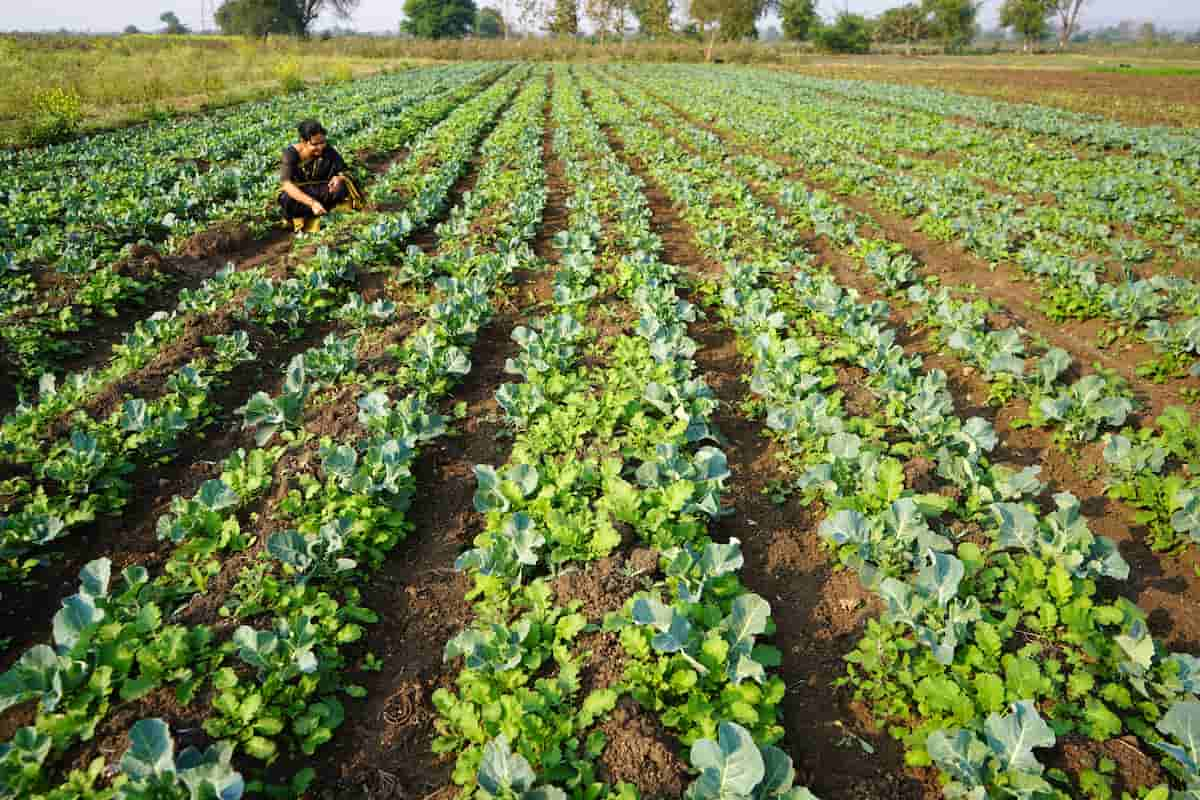
Organic Farming Areas in Italy
Organic farming in Italy is an excellent way of producing healthy and quality products while promoting environmental sustainability. With over 2.2 million hectares of land used for organic farming in Italy, Sicily ranks first with a significant area used for this purpose, followed by Apulia and Tuscany.
Schemes and Laws Under Organic Farming In Italy
- The Italian government has introduced a new law to promote organic production in Italy. The “Organic Made in Italy” scheme recognizes the unique role of organic farming in social development and environmental sustainability. This is a significant step towards making Italy an organic farming hub.
- The policy aims to increase the supply of organically produced food while promoting sustainable agricultural practices. Organic Made in Italy will encourage more farmers to adopt organic methods by providing financial incentives, technical assistance, and marketing support for their products.
- This scheme also focuses on reducing greenhouse gas emissions from agriculture, protecting biodiversity, and preserving soil health. By implementing these policies, organic farming will contribute to achieving climate change goals.
- Moreover, this initiative will create new job opportunities in rural areas while enhancing food security for consumers who seek healthier options. As people are becoming increasingly conscious about what they consume and its impact on the environment, it is essential that governments recognize the value of sustainable farming practices like organic farming.
- Organic Made in Italy is an innovative approach highlighting the importance of supporting sustainable agriculture through financial aid and other initiatives. It provides a boost not only to farmers but also promotes social development and environmental sustainability for future generations.
The Challenges of Organic Farming in Italy
- The biggest challenge in organic farming is managing pests and diseases without synthetic chemicals.
- Without these chemicals, organic farmers must rely on alternative methods such as crop rotation, companion planting, and natural pest predators to keep their crops healthy. This requires a greater level of knowledge and skill than conventional farming practices.
- Another challenge faced by organic farmers is weed management. Instead of using herbicides, they must use manual labor or mechanical means to control weeds. This can be time-consuming and expensive but is necessary for maintaining soil health and preventing contamination from chemical residues.
- Nutrient management is also a significant challenge for organic farmers since they cannot use synthetic fertilizers. Organic fertilizers like compost or manure are used instead, which must be managed carefully to avoid nutrient imbalances or over-fertilization.
In case you missed it: Greenhouse Farming in Italy: Crops, 1 Acre Greenhouse Cost, Subsidy, and Loans
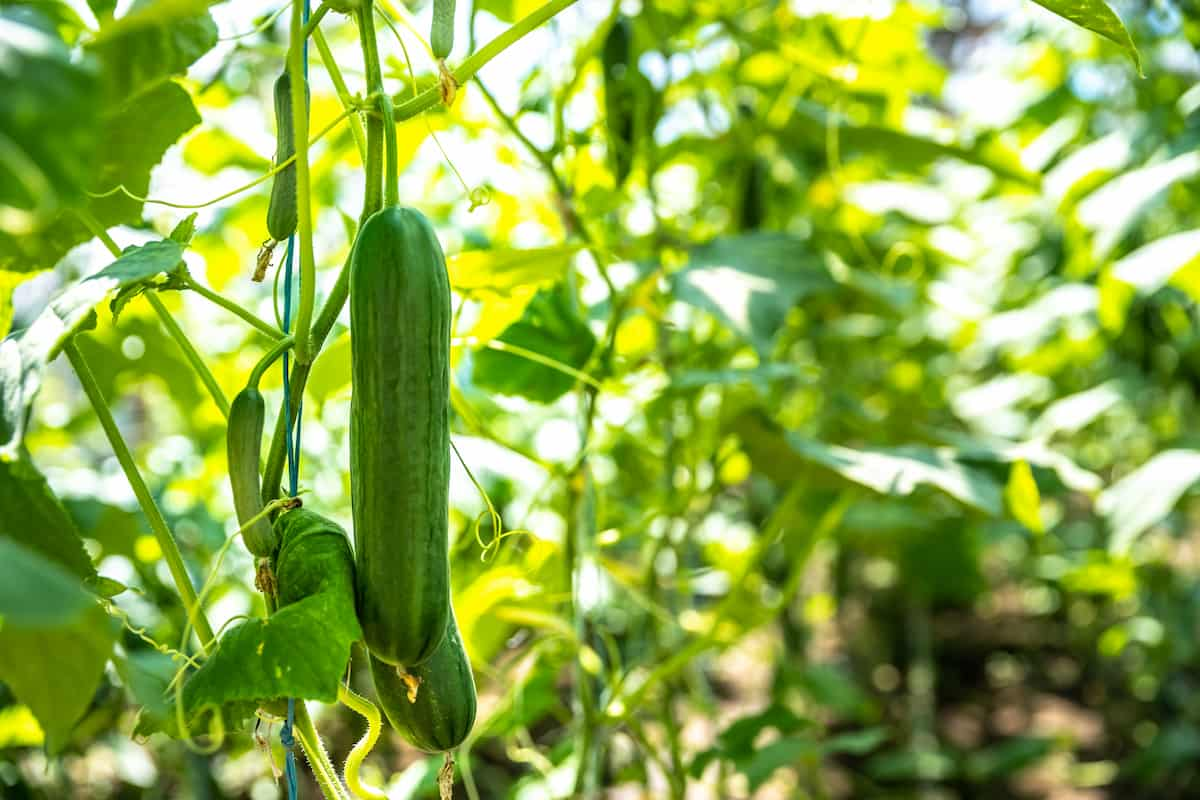
Conclusion
Organic farming is an agricultural practice that uses natural and sustainable methods to grow crops, raise livestock, and manage land. In Italy, organic farming has gained popularity in recent years due to its environmental benefits and promotion of healthy food choices.
- Economical Aquaculture: A Guide to Low-Budget Fish Farming
- 15 Common Planting Errors That Can Doom Your Fruit Trees
- How to Make Houseplants Bushy: Effective Tips and Ideas
- Innovative Strategies for Boosting Coconut Pollination and Yield
- Pollination Strategies for Maximum Pumpkin Yield
- The Complete Guide to Chicken Fattening: Strategies for Maximum Growth
- Natural Solutions for Tulip Problems: 100% Effective Remedies for Leaf and Bulb-Related Issues
- Revolutionizing Citrus Preservation: Towards a Healthier, Greener Future
- Natural Solutions for Peony Leaf and Flower Problems: 100% Effective Remedies
- Maximizing Profits with Avocado Contract Farming in India: A Comprehensive Guide
- Natural Solutions for Hydrangea Problems: 100% Effective Remedies for Leaf and Flowers
- The Ultimate Guide to Choosing the Perfect Foliage Friend: Bringing Life Indoors
- From Sunlight to Sustainability: 15 Ways to Use Solar Technology in Agriculture
- The Ultimate Guide to Dong Tao Chicken: Exploring from History to Raising
- The Eco-Friendly Makeover: How to Convert Your Unused Swimming Pool into a Fish Pond
- Mastering the Art of Delaware Chicken Farming: Essentials for Healthy Backyard Flocks
- 20 Best Homemade Fertilizers for Money Plant: DIY Recipes and Application Methods
- How to Craft a Comprehensive Free-Range Chicken Farming Business Plan
- Brighten Your Flock: Raising Easter Egger Chickens for Beauty and Bounty
- How to Optimize Your Poultry Egg Farm Business Plan with These Strategies
- Subsidy for Spirulina Cultivation: How Indian Government Schemes Encouraging Spirulina Farmers
- Ultimate Guide to Raising Dominique Chickens: Breeding, Feeding, Egg-Production, and Care
- Mastering the Art of Raising Jersey Giant Chickens: Care, Feeding, and More
- Ultimate Guide to Raising Legbar Chickens: Breeding, Farming Practices, Diet, Egg-Production
- How to Raise Welsummer Chickens: A Comprehensive Guide for Beginners
- How to Protect Indoor Plants in Winter: A Comprehensive Guide
- Ultimate Guide to Grow Bag Gardening: Tips, Tricks, and Planting Ideas for Urban Gardeners
- Guide to Lotus Cultivation: How to Propagate, Plant, Grow, Care, Cost, and Profit
- Agriculture Drone Subsidy Scheme: Government Kisan Subsidy, License, and How to Apply Online
- Ultimate Guide to Raising Araucana Chickens: Breed Profile, Farming Economics, Diet, and Care
- Bringing Hydroponics to Classroom: Importance, Benefits of Learning for School Students
- Ultimate Guide to Raising Polish Chickens: Breed Profile, Farming Economics, Diet, and Care
- Ultimate Guide to Raising Australorp Chickens: Profile, Farming Economics, Egg Production, Diet, and Care
- Silkie Chicken Farming: Raising Practices, Varieties, Egg Production, Diet, and Care
- Sussex Chicken Farming: Raising Practices, Varieties, Egg Production, Diet and Care
- Homemade Feed Formulations for Livestock: Discover Cost-effective Starter to Finisher Feed Recipes